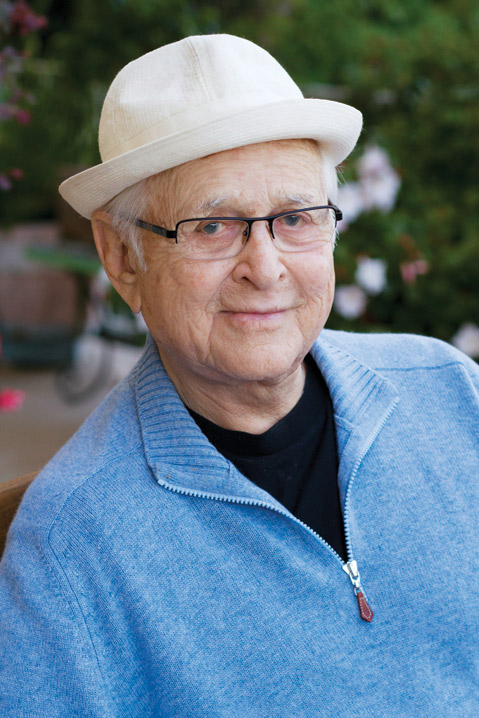Norman Lear In Conversation
Barry Kemp Interviews Norman Lear for Antioch
It’s become a widely held and welcome belief that we are in the midst of the new golden age of television. Not only is the range of programming available unprecedented, but also the quality in many instances is off the charts. Yet for those viewers who have been around long enough to remember such groundbreaking classics of the 1970s as All in the Family, Sanford and Son, and Mary Hartman, Mary Hartman, the sense that television can do things that no other medium can do may have peaked 40 years ago when Norman Lear, the legendary producer of these and many other memorable and often provocative shows, was in his prime. The 92-year-old sitcom wizard has a new memoir out called Even This I Get to Experience. He’ll also be at the Music Academy’s Hahn Hall on Friday, March 6, at 5:30 p.m. to sit down with another sitcom hall of famer, Newhart’s Barry Kemp, for a discussion on the topic of “Laughter and Social Change.” The program is part of the Antioch In Conversation series and will include both illustrative clips from Lear’s work and plenty of inspiring and insider showbiz information.

As his memoir amply demonstrates, Lear was not only a witness but also often a participant in nearly every consequential battle for freedom from censorship fought by television artists from the 1960s through the 1980s. In this tumultuous time, Lear’s shows consistently pushed the boundaries of what subjects could be covered and of what language could be used in prime time. For example, after four seasons at number one in the ratings in its Saturday eight o’clock time slot, All in the Family, Lear’s signature achievement and the greatest of all topical sitcoms, was bumped to nine o’clock on Mondays by something called “Family Viewing Hours.” This network-mandated restriction decreed that sex and violence would have to wait until after the kids went to bed — at least on television anyway. All in the Family continued its hold on the number one slot in the ratings, but in the meantime, Lear realized something hugely consequential about the regulation; it would keep his top show permanently out of the lucrative seven o’clock syndication market. The lawsuit Lear brought in Los Angeles on the grounds of free speech prevailed, and in 1976 the FCC’s Family Hour concept was declared to be a form of censorship and discontinued.
Lear’s interlocutor for Friday’s talk will be another television legend, the writer and producer Barry Kemp, who wrote for Taxi and created both Newhart and Coach. For Kemp, whose break-in spec script was an All in the Family episode, Lear created “a new culture for watching TV” by picking up on “current events that were painful” and “dealing with significant social change” in a way that was “never preachy.” Amen to that.
For tickets and information to “Laughter and Social Change,” visit antiochsb.edu



